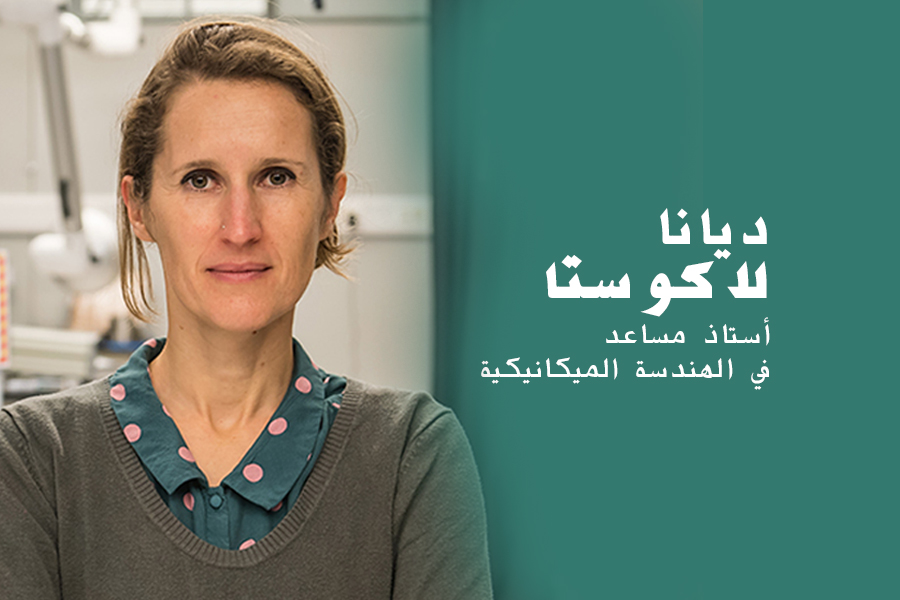Faculty Focus: Deanna Lacoste

Deanna Lacoste, assistant professor of mechanical engineering in the University's Physical Science and Engineering Division.
Assistant Professor of Mechanical Engineering Deanna Lacoste was appointed to her position at KAUST in November of 2016 from École Centrale Paris (France), where she had worked previously for 12 years. Her research focuses on plasma-assisted combustion and flame dynamics, with special emphasis on control of thermoacoustic instabilities by non-equilibrium plasma discharges. Lacoste is also interested in detonation and development of optical diagnostics for combustion and electrical discharges.
Lacoste completed her M.S. in mechanical engineering at the French Institute for Advanced Mechanical Engineering in 1998, and did her M.S. in aerodynamics, combustion and thermodynamics and her Ph.D. in combustion at the University of Poitiers (France) in 1999 and 2002, respectively. She then completed a postdoctoral fellowship in optical diagnostics at the École Centrale Paris from 2003 to 2004.
“After École Centrale Paris, I was looking for new challenges and new opportunities in research. I met KAUST Professor Suk Ho Chung at a conference, and at the time, he was the director of the University’s Clean Combustion Research Center (CCRC). He introduced me to KAUST, and after looking at the website, I found that the university was amazing, so I applied to come work here,” she said.
Lacoste’s research focuses on plasma-assisted combustion and detonation.
“I try to investigate if non-equilibrium plasma discharges can be used to control combustion dynamics and assist the deflagration-to-detonation transition. I do experimental work to try to understand the physics of the coupled phenomenon in which I’m interested. I also develop and implement optical and laser diagnostics adapted to flames and electrical discharges phenomena. My ultimate goal is to try to offer new combustion concepts that are more efficient and less able to pollute than the current ones,” she said.
“I’m currently building my research group and my experimental setups,” Lacoste noted. “I will try as soon as possible to have significant results in plasma-assisted combustion at high pressure, because the studies in this field are very scarce and good results could have a major impact for industrial applications as well as for the scientific community.”
Although she has only been at KAUST a short while, Lacoste has already benefited both professionally and personally from her time at the University.
“I’m extremely happy to be at KAUST. I know it can sound a bit ‘formatted’ to say, but I really enjoy the international environment here,” she said. “However—as anywhere else—if you want to be successful here, you have to work hard no matter the climate, the environment and the nice community.”
-By David Murphy, KAUST News.

